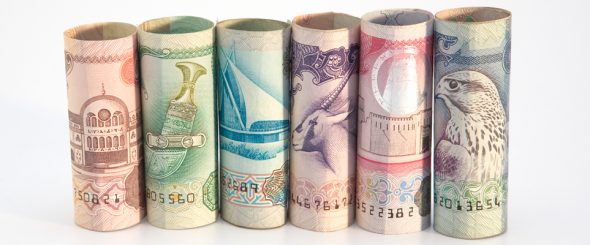VAT in the UAE: Consumers will see biggest impact says expert
We all now know that the UAE will have VAT by January 2018, but who will the tax affect the most?
The UAE will have value added tax (VAT) on many consumer goods, from cars to handbags, by January 2018, and while many details have yet to be confirmed, we do know that the tax will be around five per cent.
So who will the tax affect most dearly? Well, today an expert on VAT told Gulf Business that it will ultimately be the consumers that take the biggest hit.
“VAT is not a tax on sales; it’s a tax on consumption and it sticks with the final consumer,” explained Martin Dane, the associate director of VAT and Indirect Tax at audit and accountancy firm RSM.
While in Dubai, tax expert Dane explained that VAT is passed on through the supply chain until it reaches the customer, meaning most companies can remain tax neutral and therefore effectively act as tax collectors for the government (and that the purchasers ultimately end up paying the price).
READ MORE
*IMF Chief says UAE should start thinking about income tax*
*16 ways to organise your life (and make money from it)*
“Of course you are going to hear complaints about everything being more expensive,” Shehab Gergash, the managing director of Daman Investments, also told Gulf Business. “But people will learn to live with it. I think, gradually, everyone will be habituated with it,” he added.
So what is Vat exactly? According to Economy Watch, “Value added tax or VAT is an indirect tax, which is imposed on goods and services at each stage of production, starting from raw materials to final product.”
What we know about VAT in the UAE so far…
 – We know the tax will start to be charged in January 2018, and that it will be at a rate of five per cent.
– We know the tax will start to be charged in January 2018, and that it will be at a rate of five per cent.
– We know that around 100 items will be exempt from the tax, these include essentials such as education, food and healthcare.
– We know the tax is being introduced across the GCC, and that its implementation has a lot to do with the significant drop in government revenue across the region caused by falling oil prices.
– We know that more details of the VAT scheme across the GCC will be released in the next few months.
– We know that the GCC VAT rate will be very low by worldwide standards. In Albania the rate is 20 per cent, in Australia it’s 10 per cent, in Austria it can be up to 20 per cent – and that’s just the ‘A’ countries. Hungary has the highest VAT rate in the world at 27 per cent, followed by Iceland at 25.5 per cent, and then Croatia, Denmark, Norway and Sweden at 25 per cent.
What kind of shopping will it affect the most?
According to an article by compareit4me.com expert Sonja Stephen on EmiratesWoman.com: “The retail sector will be protected as much as possible, with price increases not being too much of a shock to middle and low income earners. Good news, right? Big purchases will obviously take bigger hits, like cars for example.”
She goes on to explain that VAT is “a positive move to help diversify the government’s sources of income and also a move to put the UAE more in line with an idea that many other countries, globally, have already put into practice. The region will no longer maintain its zero-tax proposition, that’s true, but the impact on our daily lives will be minimal…and the UAE, meanwhile, will continue to flourish.”
